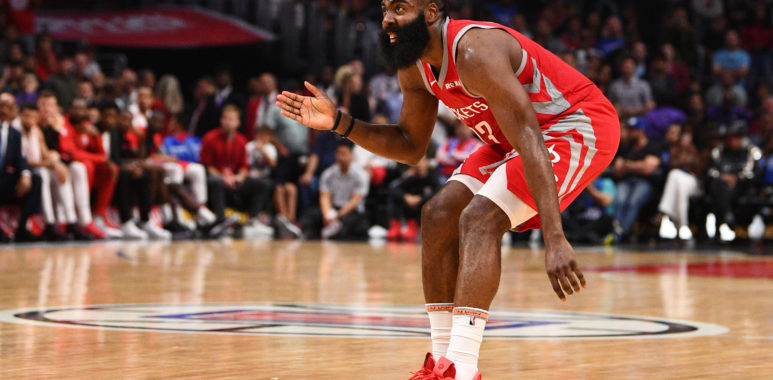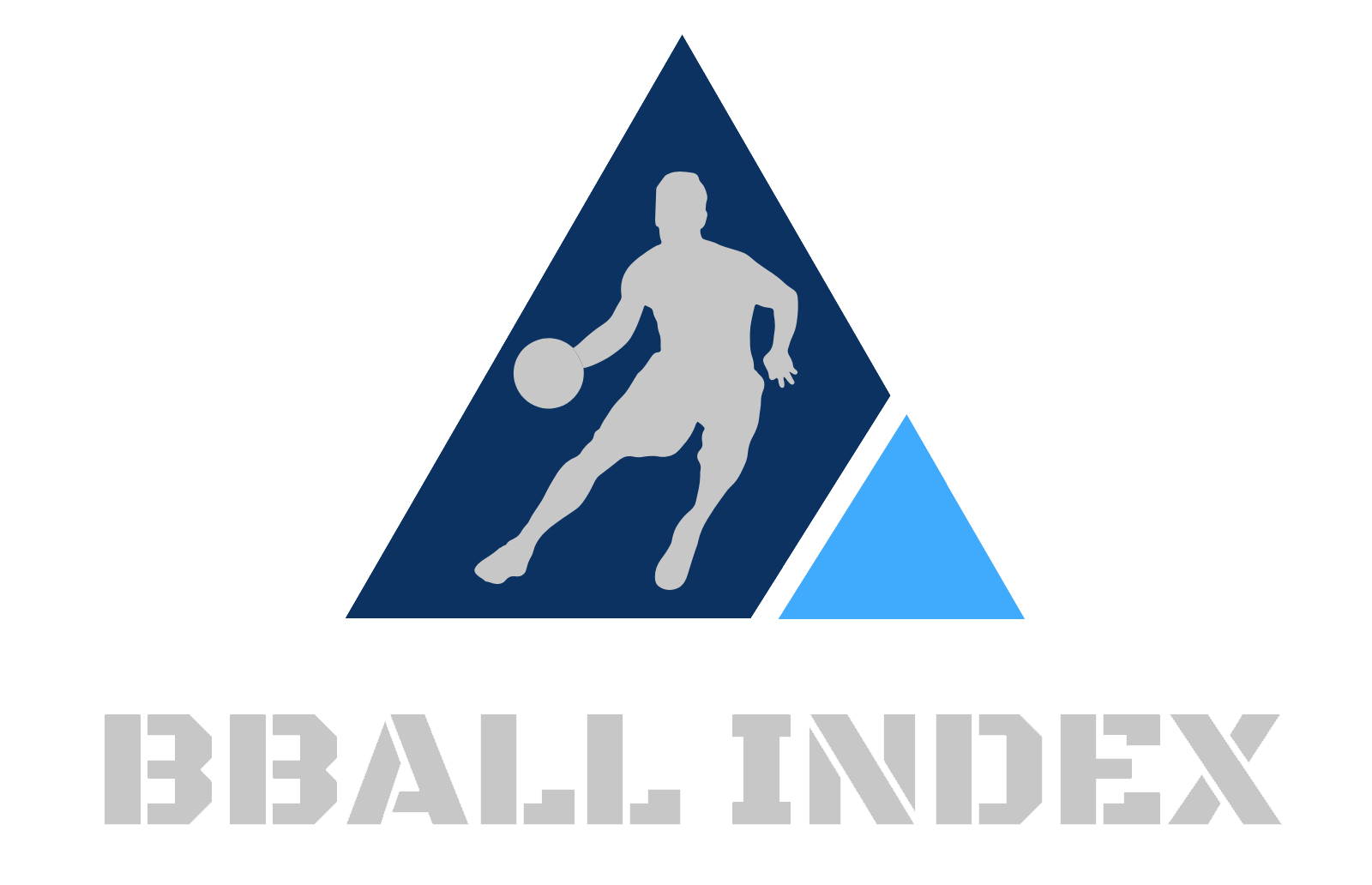
Flipping the switch: examining the Houston Rockets defense
One hamstring pull away.
That seems to be the common takeaway from the Houston Rockets’ 2017-18 campaign. They did almost everything right: acquired a top-3 point guard in Chris Paul, added versatile wings to bolster their defense, got another MVP caliber season from James Harden, and pushed all the right buttons against the eventual champs. But then Paul pulled his godforsaken hamstring, and suddenly, a 3-2 series lead never felt so bad.
You know the rest of the story. The Rockets started out blazing from three in Game 6, only for the Warriors to have one of their signature 3rd quarters and run away with the contest. In Game 7, the Rockets started out hot again, but then went colder-than-cold, missing an improbable 27 threes in a row before being eliminated.
It was a heartbreaking end to an incredible season. On the bright side, the Rockets found the blueprint. Their matchup-hunting isolation attack made Stephen Curry work harder than he’d like. Their switch-almost-anything defensive scheme forced Golden State to double their isolation frequency and take them out of rhythm.
Though the Rockets didn’t have an ideal summer (more on that shortly), they still entered the season with their four most important players (Harden, Paul, Clint Capela, PJ Tucker), and a game plan that should keep them among the West’s elite class. That may still be true, but the early returns have not been great.
The Rockets are off to a 1-2 start. That isn’t a big deal in a vacuum, but the way they’ve lost is the concerning part. The biggest issue: they’re bleeding points. They currently rank 24th in the NBA in defensive rating, giving up 114.2 points per 100 possessions. That’s a far cry from last year, where they ranked 7th (105.6 points allowed per 100 possessions).
Downgrade in personnel
File this in the “Well, duh” category: you need the right personnel to make a switching scheme (or any scheme) successful. With rangy defenders like Paul, Trevor Ariza, Luc Mbah a Moute, Tucker, and Capela, Houston had the requisite pieces to stifle offenses last season. Their defense jumping from 18th (2016-17) to 7th was the biggest reason why they became serious contenders.
Ariza and Mbah a Moute were particularly effective defenders on the perimeter. Among wings that played at least 1500 minutes last season, both Ariza and Mbah a Moute graded out well as perimeter defenders, ranking in the 81st and 80th percentile respectively. Their unique mixes of length, tenacity, and IQ allowed them to credibly defender 2-through-4. In Mbah a Moute’s case, he could bang with 5s in a pinch. Mbah a Moute actually graded out better as an interior defender (84th percentile among wings) than on the perimeter (80th percentile).
With Ariza deciding to go to Phoenix (get those #checks) and Mbah a Moute heading back to Los Angeles over the summer, the Rockets went bargain hunting. They snagged energetic wing James Ennis and former Rookie of the Year Michael Carter-Williams, hoping they could fill in as adequate replacements.
It seems like a decent bet on paper; using the same minute and position baselines from earlier, Ennis and Carter-Williams ranked in the 57th and 75th percentile respectively as perimeter defenders last season. Getting both players on minimum deals served as low-risk, moderate-reward moves.
To their credit, they’ve mostly been fine. But “fine” isn’t “elite.” The difference in skill and size (more on that shortly) has been felt so far.
Downside of switching
Switching is meant to take away advantages, particularly on the perimeter. By keeping the ball in front, the hope is that offenses are forced into isolation situations. That can leave you susceptible to small-on-big or big-on-small matchups. However, having a versatile big like Capela or a stronger-than-he-looks Harden can, in theory, close the gap.
Unfortunately for Houston, that gap hasn’t been closed at all.
Teams have flipped the script on Houston; now they’re hunting out mismatches and getting good looks with regularity. Houston has been pounded hard in the paint. They’re allowing the second most attempts in the restricted area (40.3), and opponents are converting those shots at a league-best 71.1 percent rate.
The New Orleans Pelicans carved up the Rockets like a pumpkin in the season opener with minimal effort. Anthony Davis, Nikola Mirotic, and Julius Randle shot a combined 18-of-21 (85.7 percent) in the restricted area. It didn’t take much; a screen “forced” the mismatch, an entry pass was made, then a bucket was scored.
Here, the Pelicans go into their version of “Elbow Quick” with Elfrid Payton as the distributor. Davis and Jrue Holiday hook up for some flex action, forcing Ennis to switch onto Davis. Davis seals off Ennis before knocking down the short jumper.
powered by Advanced iFrame free. Get the Pro version on CodeCanyon.
A little later, a simple slip out of a high pick-and-roll ends with Gerald Green trying to stop Randle. You can guess how that ended:
powered by Advanced iFrame free. Get the Pro version on CodeCanyon.
Again, it doesn’t take much. Here, Davis frees E’Twaun Moore with a pindown screen, then puts Paul on his hip for an easy bucket:
powered by Advanced iFrame free. Get the Pro version on CodeCanyon.
It’s just been too easy.
Teams are shooting a smidgen over 56 percent on post-ups against the Rockets this season, a bottom-five mark in the league. Of the 47 post possessions the Rockets have defended, only 10 of them have been defended by their “big” rotation of Capela, Tucker, and Carmelo Anthony. That means teams have been able to generate those small-on-big mismatches. The new wing additions — Ennis and Carter-Williams — have been especially poor; opponents have shot a combined 9-of-10 against them on post-ups.
Lapses in space
In addition to (sometimes unnecessary) switches putting Houston behind the eight ball, off-ball focus has been an issue. No one has been a bigger culprit than Harden, though this isn’t a new development for him.
Let’s start with this transition possession by the Lakers:
powered by Advanced iFrame free. Get the Pro version on CodeCanyon.
Harden originally stays home to pick up JaVale McGee while Ennis tries to recover. But after Ennis gets back into the play, Harden … doesn’t do much of anything. He stares down McGee after his tough catch, then watches LeBron fly in for the dunk.
But wait, there’s more:
powered by Advanced iFrame free. Get the Pro version on CodeCanyon.
A simple pick-and-roll generates a small-on-big mismatch (a theme!) that clearly worries Harden. He signals for Anthony to rotate over, but loses his own man (Tobias Harris) in the process. As the song says, “Sweep around your own front door, before you try to sweep around mine.”
How about one more for the ride home:
powered by Advanced iFrame free. Get the Pro version on CodeCanyon.
Flex action between Danilo Gallinari and Patrick Beverley generates another switch — shocking, I know. Gallinari is guarded by Eric Gordon, the one player that has had success defending post-ups this season (1-of-7 shooting allowed through three games). Harden steps up to provide some semblance of help, but once again loses track of Harris.
How concerned should Houston be?
Honestly, not too much.
The defense hasn’t been great, and there is definitely room to tighten up. On the flip side, they’re one of 13 — 13! — teams with a defensive rating of 110 or higher. The “freedom of movement” rule has just about everyone playing on eggshells. That, combined with the faster pace across the league has made everyone look a little worse than they are. Also, this is a three-game sample for Houston.
Still, following up a questionable offseason with three straight less-than-ideal showings on defense isn’t what you want. Saturday night’s spit-filled brouhaha leaves Houston a little shorthanded for the immediate future, There’s a chance things get worse before they get better, but ultimately, it should get better. This is still a veteran group with a strong core. An enhanced level of focus and more reps for the newbies should get Houston back on track well before things actually matter.
